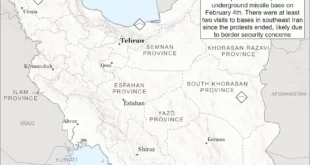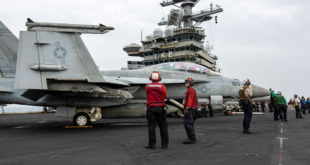 TEHRAN (FNA)- India’s External Affairs Minister Pranab Mukherjee, who is on a current visit to Tehran to attend the 15th meeting of the two countries’ joint commission, is expected to start talks with Iranian officials this week on the outstanding issues plaguing the proposed gas pipeline project.
TEHRAN (FNA)- India’s External Affairs Minister Pranab Mukherjee, who is on a current visit to Tehran to attend the 15th meeting of the two countries’ joint commission, is expected to start talks with Iranian officials this week on the outstanding issues plaguing the proposed gas pipeline project.
Mukherjee is also accompanying a letter from his country’s Petroleum Minister Murli Deora to his Iranian counterpart Gholam Hossein Nozari. In his letter to Nozari, Deora has clarified that India would pay for the gas only after it is received at the Pakistan-India border, would not pay penalty in case of a delay, and was opposed to Iran’s demand for revision in gas price every three years.
“The trilateral mechanism has to ensure that our liability to pay for the gas supplied arises only after delivery of gas at Pakistan-India border and also that the gas is safely transported through Pakistan territory,” says the letter.
Deora’s stand is that the proposed trilateral mechanism would have to be tweaked to get Pakistan – which would get half the piped gas as well as pipeline transit fee – to provide safe passage to gas. “There should be provision for suitable penalty measures to provide for defaults,” he adds.
“With regard to the suggestion of fine being imposed in case of any delay or technical problem in the project caused by any country, we would like to clarify that India being a buyer of gas and not being a transit country, its liability should be limited to taking the gas as per the contract,” says Deora, taking forward the contentious issues both nations have discussed through exchange of Non Papers.
Iran submitted its Non Paper in July after Prime Minister Manmohan Singh handed one to President Mahmoud Ahmadinejad in April. Iran’s Non Paper identified the gas blocks for feeding the pipeline and said it was willing to examine a trilateral framework for the delivery of gas at the Pakistan-India border, as suggested by India.
Welcoming Iran’s assurance that gas would come from South Pars phases 19, 20 and 21, Deora wants Tehran to ensure that the development of these blocks is synchronized with gas supply in the pipeline, and there is no supply disruption.
“It is also necessary that the Inter-Governmental Framework Declaration and other agreements provide for ‘Supply or Pay’ obligations implying that the events of failure to supply gas are covered by adequate payment guarantees to provide for cost of alternative fuels and/or losses suffered by downstream industries,” he adds.
The minister’s stance on the vexatious price review clause too is more categorical than before. “The issue of pricing needs to be settled amongst the parties at the earliest…Our view is that price review is not required since it is in-built in the pricing formula. This issue needs to be deliberated upon between us.”
Last May Iran reminded both Islamabad and New Delhi that gas prices were climbing steeply, and introduced this clause, seeking a price revision every three years.
Iran and Pakistan initiated a Gas Sales Purchase Agreement earlier this year. Indian and Pakistani officials also announced earlier this year that they had resolved all bilateral issues including transit fee which saw New Delhi boycotting IPI pipeline talks for about a year.
India has more or less agreed to give Pakistan a transit fee of $200 million per year, which is equivalent to $0.60 per million British thermal unit for allowing passage of the pipeline through that country.
India and Pakistan finally agreed in February 2007 to pay Iran $4.93 per million British thermal units ($4.67/GJ) but some details relating to price adjustment remained open to further negotiation. There was a breakthrough in the talks in April 2008 when Iranian President Mahmoud Ahmadinejad visited Pakistan and India.
According to the project proposal, the pipeline will begin from Iran’s Assalouyeh Energy Zone in the south and stretch over 1,100 km through Iran. In Pakistan, it will pass through Baluchistan and Sindh but officials now say the route may be changed if China agrees to the project.
The gas will be supplied from the South Pars field. The initial capacity of the pipeline will be 22 billion cubic meter of natural gas per annum, which is expected to be later raised to 55 billion cubic meter. It is expected to cost $7.4 billion.
According to Indian ministry sources, the IPI gas pipeline is quite crucial for New Delhi as after signing of the agreement, 60 million standard cubic meters per day (mmscmd) of gas is expected to be supplied in phase-I, which will be shared equally between India and Pakistan.
In phase-II, 90 mmscmd of gas will be supplied to India and Pakistan. So far six meetings of the trilateral joint working group (JWG) of the participating countries have been held with the last meeting being held in New Delhi on June 28-29, 2007.
India, Asia’s third-largest economy, can produce only half the gas it needs to generate electricity, causing blackouts and curbing economic growth. Demand may more than double to 400 million cubic meters a day by 2025 if the economy grows at the projected rate of 7 to 8 percent a year, according to the Indian oil ministry.
Iran plans to start exporting gas to Pakistan in 2011. Iran has completed half the pipeline, which can carry 110 million cubic meters of gas a day, National Iranian Gas Company (NIOC) said in April. India uses about 108 million cubic meters of gas a day, according to a BP Plc report.
 Eurasia Press & News
Eurasia Press & News



